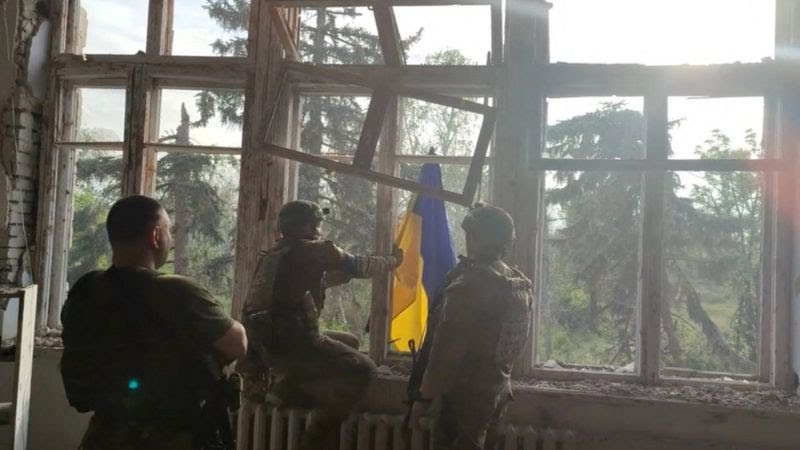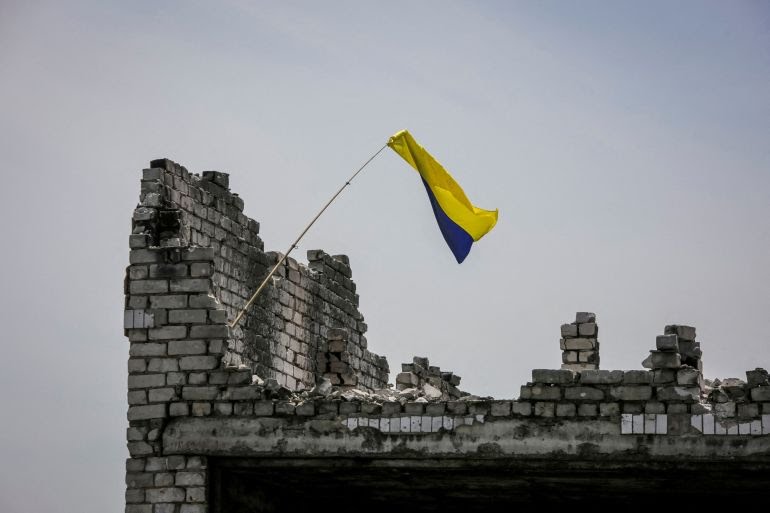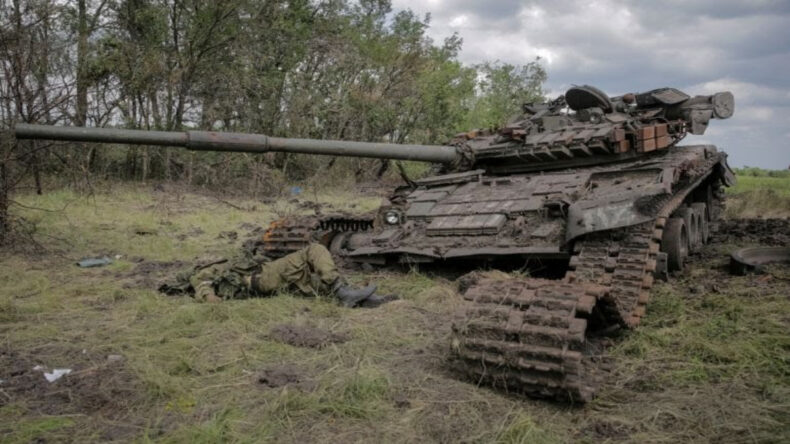New Delhi: In the ongoing conflict between Ukraine and Russia, President Vladimir Putin has claimed that Ukraine’s counter-offensive is failing to achieve any significant success.
However, Ukrainian President Volodymyr Zelenskyy has stated that progress is being made in various areas. As the fighting intensifies, both sides have reported casualties and disputed claims of territorial gains.

Image source: Reuters
According to President Putin, Ukraine’s counteroffensive, launched on June 4th, has not resulted in any advancements to the front line. He further alleged that Ukrainian troops had suffered significant losses.
However, President Zelenskyy acknowledged that there have been advances in different areas but also mentioned that Russia is contesting several villages that Ukraine claims to have recaptured. The situation remains tense, with fierce battles reported by Ukraine’s deputy defense minister.
The conflict escalated further with reports of missile strikes and shelling. A Russian missile strike targeted the Ukrainian port city of Odesa, resulting in three deaths and multiple injuries.
The Donetsk region also experienced missile attacks, claiming the lives of three civilians and causing further casualties. Industrial facilities in the Dnipropetrovsk region were also targeted by overnight attacks. Ukrainian forces managed to repel a series of drone attacks on the Black Sea region of Odesa using air defense systems.
Ukraine claims to have recaptured several settlements and approximately 90 square kilometers (35 square miles) of territory since the start of the counter-offensive.
However, these claims cannot be independently verified. Ukrainian military spokesperson Ms. Maliar mentioned advancements near the city of Bakhmut and in the southern Zaporizhzhia province. Nevertheless, she admitted that the counteroffensive has encountered well-established Russian defensive lines, leading to fierce battles.
Both Ukraine and Russia have reported mounting casualties on the opposing side, but the exact figures cannot be independently confirmed. The strikes on Odesa resulted in significant damage to a warehouse, shops, restaurants, and residential areas.

Image source: Reuters]
Furthermore, Kramatorsk and Kostiantynivka, two eastern Ukrainian cities, were targeted by shelling, leading to the deaths of three individuals and the destruction of numerous residential houses.
The conflict has raised concerns about the safety of critical infrastructure. The director of the International Atomic Energy Agency (IAEA), Rafael Grossi, has postponed his planned trip to the Zaporizhzhia nuclear plant due to the escalating situation.
The IAEA expressed worries that the plant could be affected by the crossfire of Ukraine’s counteroffensive. There is a need to assess water levels near the plant following the destruction of the Kakhovka dam, which supplies cooling pools for the facility.
Convicted Russian criminals to fight in Ukraine
Meanwhile, in Moscow, Duma has approved a bill allowing the Russian defense ministry to sign contracts with convicted criminals to fight in Ukraine. The law permits individuals who are under investigation, undergoing trial, or awaiting the verdict to join the army, excluding those accused of sexual offenses, treason, terrorism, or extremism. This move is seen as an attempt by Russia to address the increasing number of casualties without resorting to full conscription.
As the conflict intensifies in eastern Ukraine, the situation remains volatile and uncertain. Both sides continue to claim successes and allege losses, making it challenging to ascertain the true extent of the developments on the ground.
International organizations and diplomatic efforts are intensifying to promote dialogue and broker a ceasefire, recognizing the urgent need for humanitarian aid to reach affected populations. The escalating conflict has prompted widespread calls for accountability and adherence to international humanitarian law, as well as efforts to protect civilians and vital infrastructure from further harm.
The international community remains committed to supporting diplomatic initiatives aimed at achieving a lasting and peaceful resolution to the crisis, while also addressing the immediate humanitarian needs of those affected.












